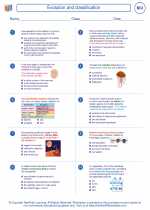What is Thermoregulation?
Thermoregulation is the process by which an organism maintains its internal body temperature within a certain range, despite fluctuations in the external environment. This is essential for the proper functioning of biological processes, as many enzymes and metabolic pathways are temperature-sensitive.
Mechanisms of Thermoregulation
There are several mechanisms by which organisms regulate their body temperature:
- Behavioral adaptations: Organisms may use behaviors such as seeking shade or sun, burrowing, or huddling together to regulate their body temperature.
- Physiological adaptations: Biological processes such as sweating, panting, shivering, and changes in blood flow help regulate body temperature.
- Anatomical adaptations: Features such as fur, feathers, or fat layers provide insulation and help retain body heat.
Homeostasis and Thermoregulation
Thermoregulation is a key component of homeostasis, the body's ability to maintain internal stability. When the body temperature deviates from the normal range, thermoregulatory mechanisms work to bring it back to the optimal level.
Temperature Regulation in Humans
In humans, the hypothalamus plays a central role in thermoregulation. When the body temperature increases, the hypothalamus triggers mechanisms to increase heat loss, such as sweating and vasodilation. Conversely, when the body temperature decreases, the hypothalamus initiates processes to conserve heat, such as shivering and vasoconstriction.
Study Guide
- What is thermoregulation and why is it important for organisms?
- Describe three mechanisms by which organisms regulate their body temperature.
- Explain the concept of homeostasis and its relationship to thermoregulation.
- Discuss the role of the hypothalamus in temperature regulation in humans.
- Compare and contrast behavioral, physiological, and anatomical adaptations for thermoregulation.
[Thermoregulation] Related Worksheets and Study Guides:
.◂Biology Worksheets and Study Guides High School. Evolution and classification

 Worksheet/Answer key
Worksheet/Answer key
 Worksheet/Answer key
Worksheet/Answer key
